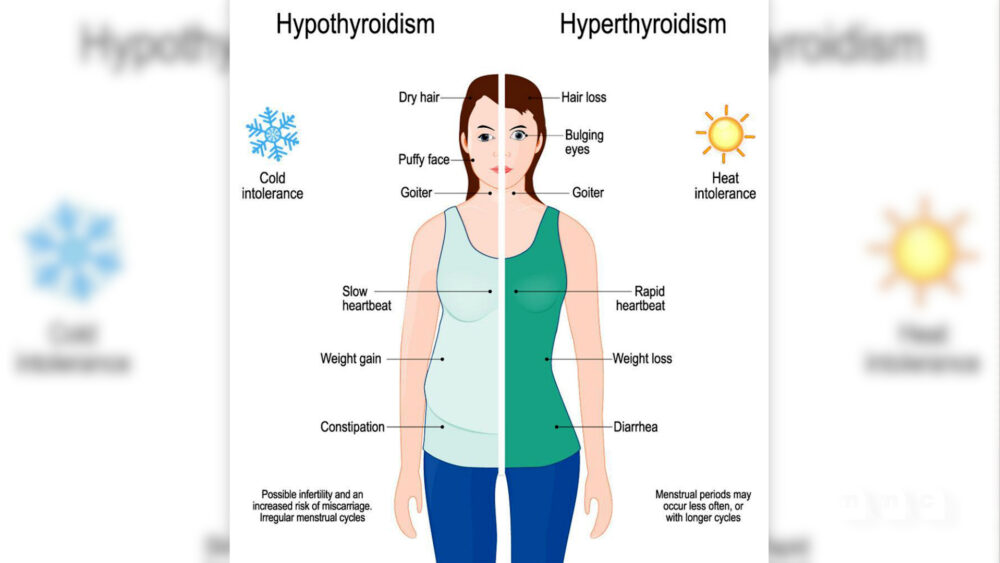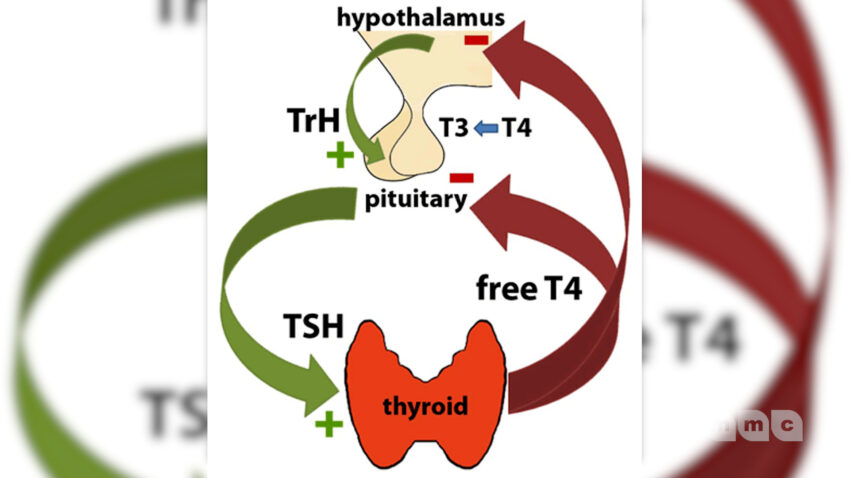What is your Thyroid and What is the Function of it?
Dr. Paul Sack, Chief of Endocrinology at MedStar Union Memorial Hospital is the guest on Housecall with host Dr. David Doman and will explain what you need to know about the Thyroid. The thyroid is a butterfly-shaped gland located at the base of the neck. The thyroid produces hormones that regulate heart rate, blood pressure, body temperature, and weight. These hormones are released by the thyroid, triiodothyronine (T3) and thyroxine (T4). If you don’t have enough thyroid hormones, then everything slows down. If you have too much then, everything speeds up.
Hyperthyroidism and Hypothyroidism
TSH Thyroid Stimulating Hormone is a test that marks what the Pituitary Gland (main control in the brain) is thinking about, when it’s thinking about what the thyroid is doing. The thyroid makes the hormones T3 and T4. The brain senses it and tells the thyroid when it is too high or too low. Hyperthyroidism is when the T4 is high and THS is low, over active. Hypothyroidism is when the T4 is low and the THS is high, under active.
3 Main Causes of Hyperthyroidism
1. Graves’ Disease
Named after Dr. Robert Graves, an Irish physician. He described this form of Hyperthyroidism about 150 years ago as an autoimmune disease that leads to a generalized overactivity of the entire thyroid gland. The immune system gets tricked and flips to attacking your cells. The protein made by the immune system looks exactly like TSH, so the thyroid doesn’t know any better and it attacks. Graves’ Disease is the most common cause of hyperthyroidism in the United States.
2. Hyperfunctioning Thyroid Nodules
A hyperfunctioning nodule is a nodular region of the thyroid gland, which is visualized as a “hot spot” on thyroid scans due to the larger amount of radiotracer, compared with the surrounding normal thyroid glands. The thyroid is always on, producing hormones. This is not as severe, but can be symptomatic.
3. Thyroiditis
Inflammation of the thyroid, typically viral, but sometimes autoimmune or traumatic. It suddenly releases all the hormones it has stored up. It causes either unusually high or low levels of thyroid hormones in the blood.
Hypothyroidism
Happens when your thyroid gland doesn’t make enough thyroid hormones to meet your body’s needs.This is an autoimmune destruction of the thyroid. Autoimmune disorders occur when your immune system produces antibodies that attack your own tissues. Sometimes this process involves your thyroid gland. It usually is a slow process of losing the hormone, slowly, making less, and less. You become extremely fatigue, dry eyes, puffy eyes, weight gain, brittle everything, and brain fog. To treat it you would need to take a thyroid hormone. Hashimoto’s thyroiditis is the most common cause of hypothyroidism in the United States.
Watch this episode of Housecall to learn more about Thyroid Eye Disease, Thyroid Nodules, and how you can treat all aspects of this disease.


